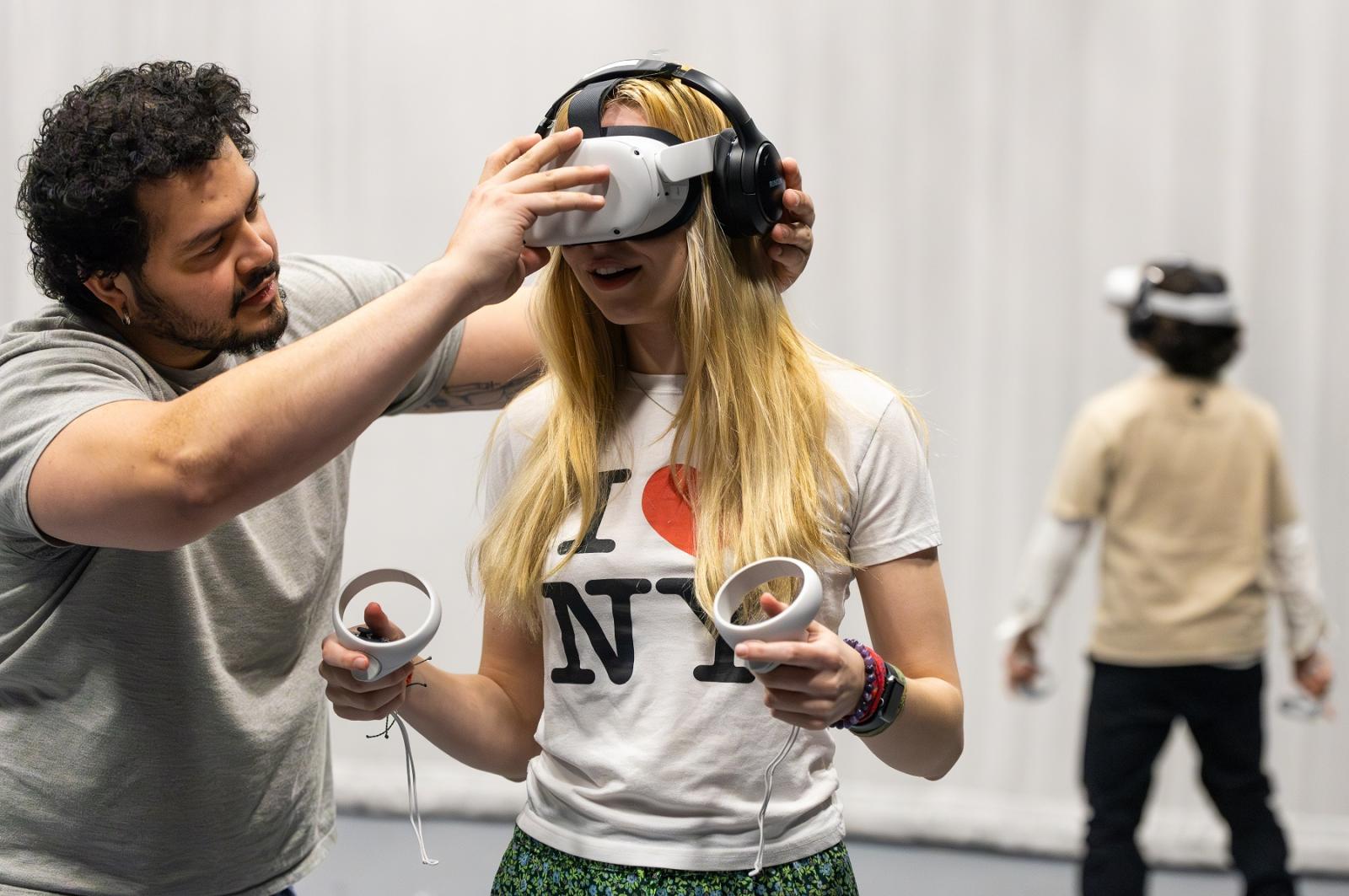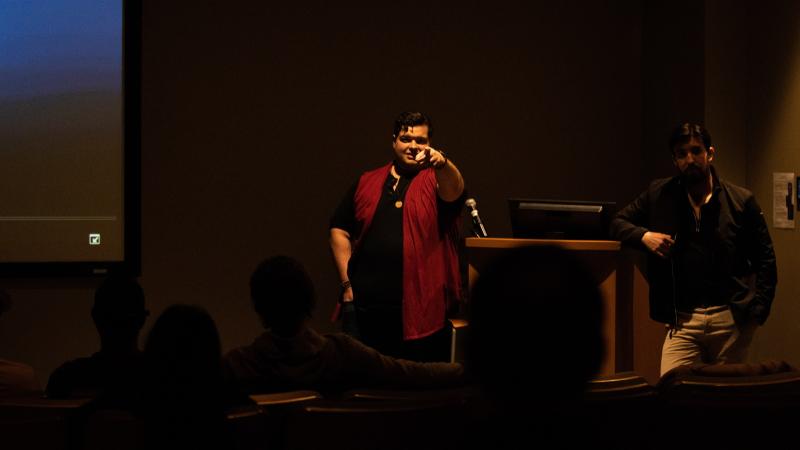Lawrence University’s Film Studies 290 course, Introduction to Game Studies, allows students to pursue a passion and build community, all while gaining insights that touch on the history, culture, and business of video gaming.
The course was offered during this year’s Winter Term, and it will return in the fall.
“There is a big community of students on campus who are very interested in games, and video games in particular,” said Angela Vanden Elzen, associate professor and reference and learning technologies librarian at Lawrence. “There are also many students here who love to bring together their personal passions and their academic interests.”
Video gaming is an enormous global industry, estimated at nearly $200 billion, according to a report earlier this year in Variety. Potential career paths are numerous.
Look no further than the success of Lawrence alumnus Josh Sawyer ’98, a design director at Obsidian Entertainment, an Xbox Game Studios subsidiary. Sawyer joined Vanden Elzen’s Game Studies class via Zoom during Winter Term to talk with students about the development of video games. He has played a lead role in developing such popular titles as Fallout: New Vegas, Pillars of Eternity, and the follow-up, Pillars of Eternity II: Deadfire, as well as the 2022 role-playing game Pentiment, which got an assist from Lawrence history professor Edmund Kern and drew huge praise and industry honors.
Pentiment received new attention in late April when it was nominated for a 2024 Peabody Award. The historical role-playing game was designed by Sawyer and his team at Obsidian, with consulting from Kern and Lawrence alumnus Winston Black ’99 to keep the history accurate for the game’s setting, 16th-century Bavaria. It was nominated in the Immersive & Interactive category.
Sparking new interest
Vanden Elzen first brought together gaming and academia four years ago when she taught The History of the Video Game.
The course sparked wider interest, and along with film studies program support coordinator José Lozano, Vanden Elzen created Introduction to Game Studies. The course looks at games through a theoretical and cultural studies lens, covering topics such as empathy in virtual reality and player personalization and copyright.
For this course, Vanden Elzen said, the main takeaway for students is to think critically about the media they consume.
“You should be looking at how people are represented, how it could be reinforcing stereotypes or biases, and looking at if a game seems to be well made—not just consuming, but also thinking of ourselves as part of the game community, as creators and consumers,” Vanden Elzen said.
VIDEO: Angela Vanden Elzen talks about creating the Introduction to Game Studies course
Vanden Elzen and Lozano accomplish this through assigned readings, lectures, writing papers, and yes, of course, playing games. Each week, students try out a new game and evaluate its competency and effectiveness based on the principles they’ve learned.
Also, as part of the course, students choose their own game to evaluate as a game studies scholar, Vanden Elzen said. Through research, students develop their own argument about the game and support it with their scholarship.
For their final exam in Winter Term, students had the chance to develop their own video game and prepare a pitch presentation for a panel of “CEOs” to get their game made.
“Students have to think about what they’ve put into the game, the parts that they’re most proud of, and try to show they can work together as a team,” Vanden Elzen said. “It’s just a celebration of the cool stuff that they’ve done over the term.”
Enjoy an individualized path through the study of film and related mediums across an array of disciplines.
There are no rules when it comes to what kind of games students can produce. Global studies major Marcus Jackson, a sophomore from Chicago, and his team worked on a Western role-playing game about their main character, “Sally Six-Shooter.”
Meanwhile, film studies and theatre arts double major Nayla Brunnbauer’s team developed a concept for a narrative game set in a high school. The senior from Hartland, Wisconsin, explained the story follows Molly, who must save her friend, Crystal, from detention. To do so, they must find keys throughout the school.
“It’s going to be really fun, super silly, and I’m really excited to do this project,” Brunnbauer said.




